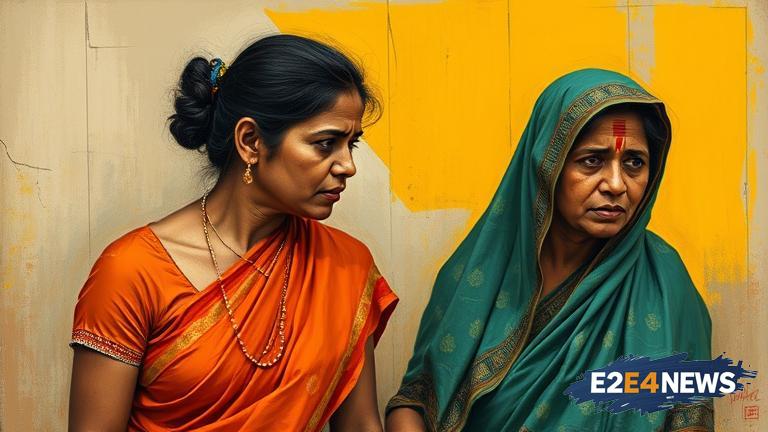In India, married women often bear the brunt of societal expectations, with many shouldering the responsibility of managing the household, raising children, and maintaining relationships with their spouses and in-laws. This can lead to a significant amount of stress and pressure on these women, who are expected to balance their multiple roles with ease. Despite their contributions to the family, many married women in India face discrimination and inequality, with their rights and freedoms often being curtailed. The patriarchal nature of Indian society means that men often hold more power and authority, leaving women to navigate a complex web of social norms and expectations. Furthermore, the lack of support from their families and communities can exacerbate the problems faced by married women, making it difficult for them to cope with the demands placed upon them. In addition to their domestic responsibilities, many married women in India also face pressure to conform to traditional norms and values, which can limit their ability to pursue their own goals and aspirations. The burden of caring for their families can be overwhelming, with many women sacrificing their own needs and desires in order to prioritize those of their loved ones. This can lead to feelings of resentment and frustration, as well as a sense of disconnection from their own identities and interests. Moreover, the limited access to education and economic opportunities can further restrict the choices and options available to married women in India, making it difficult for them to achieve financial independence and security. The cultural and social norms that govern Indian society can also perpetuate gender-based violence and discrimination, with many women facing harassment and abuse at the hands of their spouses and in-laws. In order to address these issues, it is essential to promote greater awareness and understanding of the challenges faced by married women in India, as well as to advocate for policies and programs that support their empowerment and well-being. This can involve providing access to education and economic opportunities, as well as promoting gender-sensitive laws and policies that protect the rights of women. Additionally, it is crucial to challenge the patriarchal attitudes and norms that perpetuate gender-based discrimination and violence, and to promote a more equitable and just society for all. By working together to address these issues, it is possible to create a brighter future for married women in India, one that is marked by greater freedom, equality, and opportunity. The Indian government has also launched several initiatives to support the empowerment of women, including programs to promote education and economic opportunities, as well as laws to protect women from domestic violence and harassment. However, more needs to be done to address the deeply ingrained social and cultural norms that perpetuate gender-based discrimination and violence. Ultimately, the key to creating a more equitable society for married women in India lies in promoting greater awareness and understanding of the challenges they face, as well as in advocating for policies and programs that support their empowerment and well-being.
